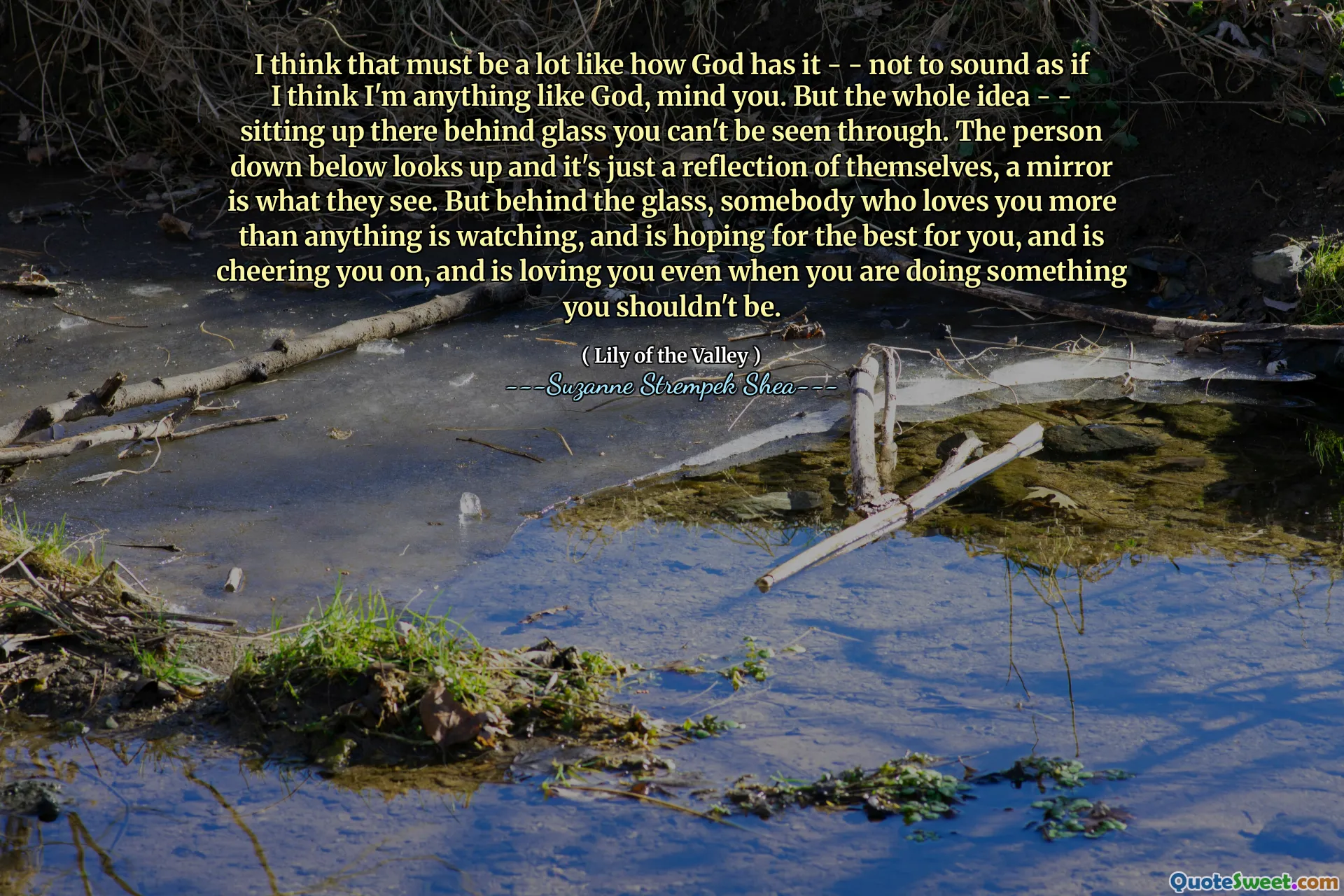
I think that must be a lot like how God has it - - not to sound as if I think I'm anything like God, mind you. But the whole idea - - sitting up there behind glass you can't be seen through. The person down below looks up and it's just a reflection of themselves, a mirror is what they see. But behind the glass, somebody who loves you more than anything is watching, and is hoping for the best for you, and is cheering you on, and is loving you even when you are doing something you shouldn't be.
This quote offers a profound reflection on the nature of divine love and omnipresence. The analogy comparing God’s position to someone behind a transparent glass emphasizes the idea that divinity observes us unobtrusively, allowing us to see ourselves clearly—like reflections in a mirror. It suggests that when we look into ourselves or the world around us, we are only perceiving a reflection of our own actions and choices. However, behind that transparent barrier is a loving presence that cares deeply for us, regardless of our shortcomings. This love is unconditional, consistent, and present even in moments of failure or doubt. It challenges the reader to consider the omnipresence of divine love—an unseen but ever-present force that watches over us without judgment, purely out of love. Such a perspective can be incredibly comforting, especially in times of strife or error, reaffirming that we are not alone and that a source of boundless love remains attentive and supportive, even when we falter. It also invites a heightened sense of self-awareness, encouraging us to recognize our reflections and to act with kindness, knowing that love is quietly observing us from behind the glass. Noticing this love can be a source of strength, hope, and reassurance, serving as a reminder that even in our most isolated or challenging moments, we are cherished beyond measure.






